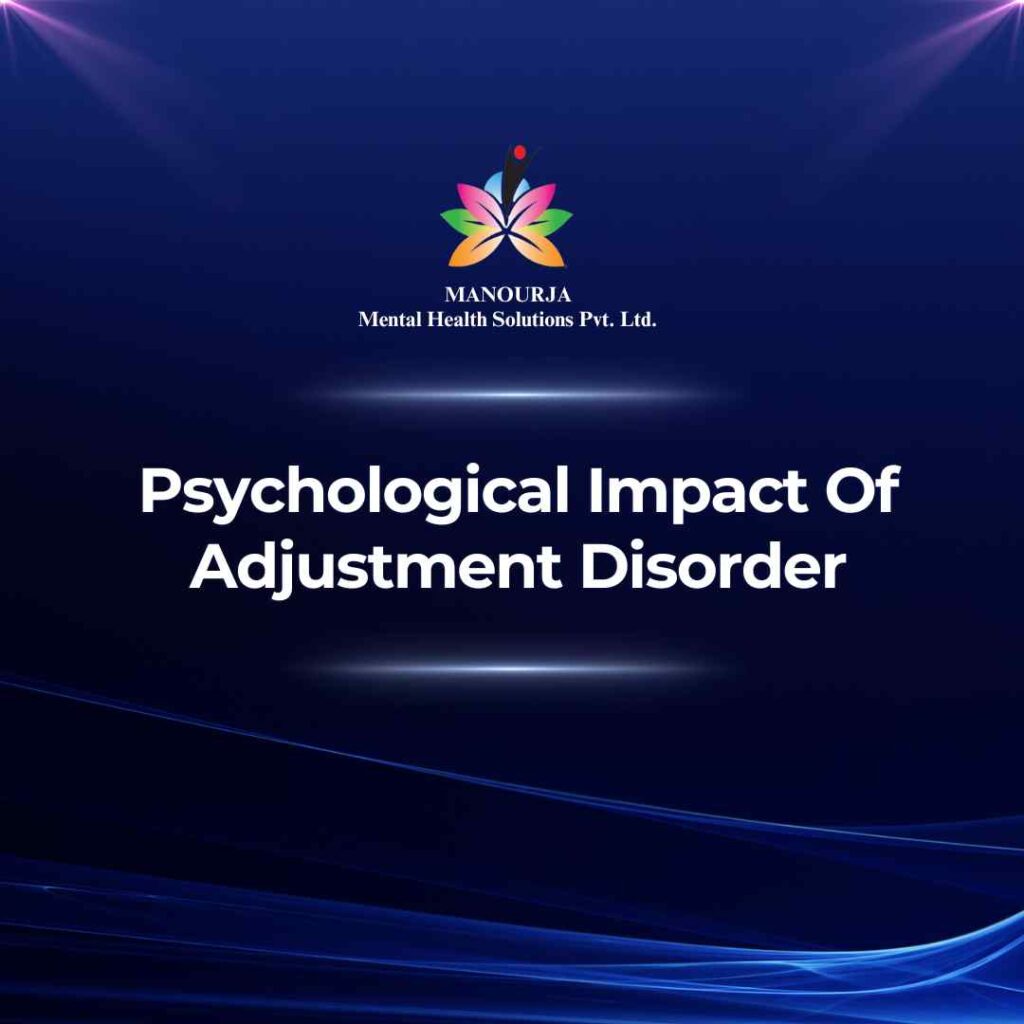Psychological Impact of Adjustment Disorder

Adjustment disorder is characterized primarily by its psychological impact, which arises in response to an identifiable stressor. This disorder manifests when the normal coping mechanisms are overwhelmed, leading to significant emotional and behavioral changes.
Here’s an exploration of the psychological impact of adjustment disorder:
- Emotional Distress: One of the most direct impacts of adjustment disorder is heightened emotional distress. Individuals may experience marked sadness or feelings of hopelessness, intense worry, or anxiety. These emotions can fluctuate rapidly and may feel overwhelming, making day-to-day emotional regulation challenging.
- Anxiety: Anxiety is a common symptom and can manifest in various forms—such as generalized anxiety, panic attacks, or persistent nervousness about the future. This anxiety often relates directly to the stressor, such as anxiety about financial stability after a job loss or about personal safety after a traumatic event.
- Depressive Symptoms: Although not a full-blown depression, adjustment disorder can include depressive symptoms like persistent sadness, loss of interest in previously enjoyed activities, low energy, and feelings of worthlessness or guilt. These symptoms can significantly impair an individual’s overall mood and outlook.
- Difficulty Concentrating: The stress and emotional turmoil associated with adjustment disorder can disrupt cognitive functions. Individuals may find it hard to concentrate, make decisions, or remember important information, affecting their performance at work or school.
- Withdrawal from Social Activities: People with adjustment disorder often withdraw from social interactions. This might be due to a loss of pleasure in these activities or because social situations feel overwhelmingly stressful or exhausting.
- Irritability and Agitation: Increased irritability is another significant psychological impact. Minor frustrations can lead to disproportionate anger or irritability, which can strain personal and professional relationships.
- Feelings of Overwhelm: Individuals may feel overwhelmed and unable to cope with daily tasks or minor problems. This can lead to avoidance behaviors, where the person starts shirking responsibilities or commitments because they feel unable to manage them.
- Reduced Self-Esteem: As individuals struggle with adjustment issues, they may begin to feel inadequate or incapable, leading to decreased self-esteem. This can spiral into a negative self-view that further impedes recovery and adaptation.
The psychological impact of adjustment disorder can vary greatly depending on the individual’s previous coping mechanisms, the nature of the stressor, their support system, and other personal factors. Treatment typically involves psychotherapy to address these psychological effects, develop healthier coping strategies, and often, to work through the emotions related to the stressor. In some cases, medications may also be used to help manage symptoms such as anxiety and severe mood fluctuations.
At MANOURJA, we believe in the transformative power of counseling. Our experienced therapists offer a safe and supportive space where you can explore your thoughts, emotions, and challenges. Through personalized counselling sessions, we’ll work together to develop coping strategies, build resilience, and achieve lasting positive change. Discover the path to a healthier, happier you with MANOURJA counselling services.
MANOURJA Rehabilitation Services
At MANOURJA, we’re dedicated to helping you in rebuild your life, after difficult times. Our rehabilitation services focus on understanding what you need to move forward, whether you’re recovering from addiction, trauma, or any psychological – social challenges. We create personalized plans, that are all about helping you, regain your strength and find hope again. With a caring team by your side, you’ll have the support to make real progress and take steps toward a brighter, healthier future.
